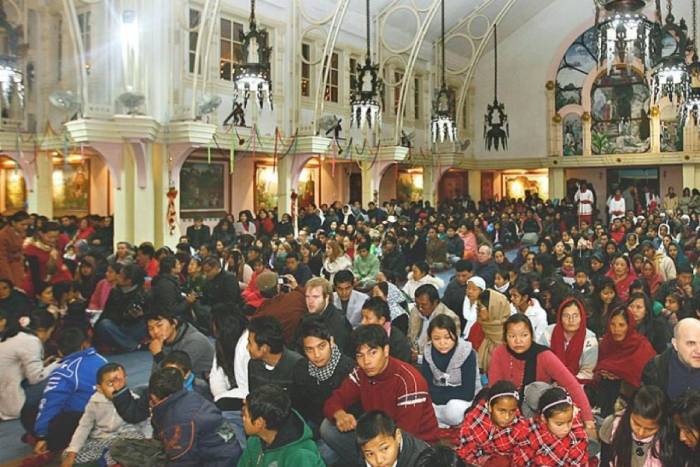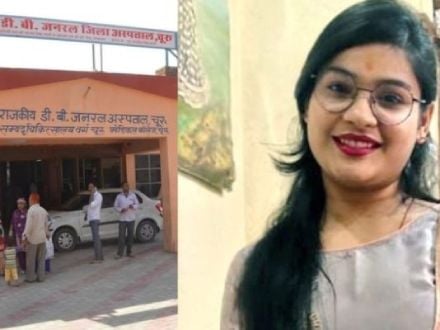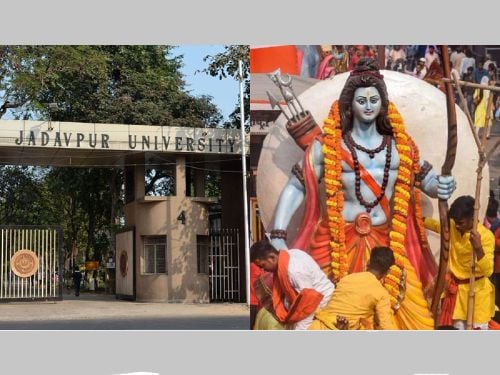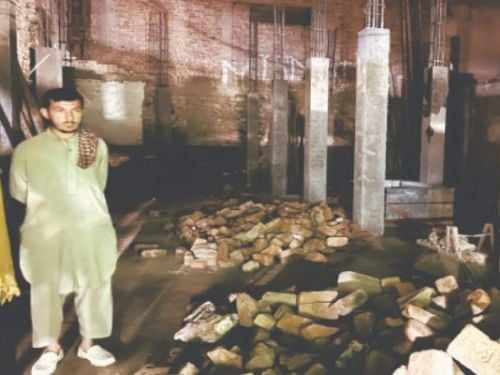
Twelve years ago, Nepal’s interim constitution that led to abolishing the monarchy in this erstwhile Himalayan kingdom, also made the Hindu-majority country a ‘secular’ one. And that led to evangelical Christian missionaries flooding the country and converting poor and vulnerable Hindus to Christianity.
Today, nearly 10 per cent of Nepal’s estimated 30 million people are Christians. As per the country’s 2001 census, Christians formed barely 0.5 per cent of the country’s population; the general secretary of the Federation of National Churches of Nepal, C B Gahatraj, boasts there are nearly 3 million Christians in Nepal today.
This alarming shift in the country’s demographic profile has triggered calls for jettisoning the ‘secular’ tag that has facilitated and encouraged rampant proselytisation by Christian missionaries and a restoration of the country’s Hindu identity. Nepal’s Rastriya Prajatantra Party (RPP) has now decided to launch a campaign for restoring Nepal’s earlier status as a Hindu state. The RPP feels that the country was made ‘secular’ under pressure from Western powers and secularism has led to dilution of nationalism in Nepal.
It is not only the RPP, which feels that Sanatan values are essential for preserving Nepal’s character and cultural identity and for the country’s internal harmony, which is demanding the junking of the country’s ‘secular’ tag. A large section within the Nepali Congress, the country’s principal opposition party, has started realising the need to amend the constitution and make Nepal a Hindu republic once again.
Influential organisations like the Bindabasini Adhyatmik Sangh Keshav Chaulagain, the Hindu Jagaran Nepal and Nepal Sanatan Dharma Sanskriti Sangathan have joined hands to preserve the country’s demography and resist proselytisation by Christian evangelists.
At a meeting of the Nepali Congress’ (NC) Mahasamiti (the party’s policy formulation body) in December last, more than half the 1,400 delegates vociferously demanded that the party backtrack from its earlier stand in favour of Nepal being a secular republic. They signed a petition demanding that Hinduism be declared the state religion and a blanket ban on conversions. Many former ministers and top office-bearers of the party signed the petition, which had the blessings of NC general secretary Dr Shashank Koirala.
Many even within the ruling Nepal Communist Party (NCP) —formed with the merger of the Pushpa Kumar Dahal-led Communist Party of Nepal (Maoist Center) and the K P Sarma Oli-led Communist Party Of Nepal (Unified Marxist Leninist) —have started supporting the demand for the restoration of Nepal as a Hindu republic. Add to this increasing section of people those who still support the monarchy and believe that the Hindu kings of Nepal were incarnations of Bhagwan Vishnu. According to political observers in Nepal, the demand for junking the country’s ‘secular’ tag has been triggered by the growing evangelical activities of Christian missionaries and the fast-changing religious demography of the country.
Interestingly, large sections of Nepal’s Muslims, who form a little less than 5 per cent of the country’s population, are supporting the demand for making Nepal a Hindu state once again. This newspaper report states that Nepal’s Muslims also want the country to become a Hindu republic. “Turning the country secular was nothing but a design to break the longstanding unity among Muslims and Hindus. So there is no alternative to reinstating the country’s old ‘Hindu State’ identity in order to allow fellow citizens to live in religious harmony,” Babu Khan Pathan, chairperson of the Rastrabadi Muslim Manch Nepalgunj, was quoted as saying by The Himalayan Times.
Other Muslim leaders and prominent clerics say that when Nepal was a Hindu kingdom, the country’s Muslims lived in harmony and peace and were never troubled by Christian missionaries.
But what really alarmed the people of the Hindu-majority country was the close involvement of the communist government with the Asia Pacific Summit in late November last. The summit was organised by Universal Peace Foundation (UPF), a controversial South Korean origin NGO that is widely suspected to fund and promote conversions to Christianity. The summit, especially the involvement of the government and the attendance of Prime Minister K P Sarma Oli, drew massive criticism from large sections of the people and opposition parties.
“People of Nepal got the impression that the government has come under the influence of Christian missionaries and that would boost conversions, thus changing the character of Nepal,” said RPP chairperson Kamal Thapa. The involvement of the government in the summit was even opposed by many ruling party leaders who felt it was a “huge mistake” for which the party would have to pay a big price.
The Asia Pacific Summit, coming in the backdrop of a sharp rise in the evangelical activities of Christian missionaries, has thus spawned demands for restoration of Nepal’s status as a Hindu republic. “Though we want Hinduism to be the state religion, non-Hindus will be free to practise their religions just as they did under the monarchy. But there cannot be any more conversions to Christianity,” said RPP’s Thapa.
The Buddhists, who form 9 per cent of the country’s population, and ethnic groups like the Kiratas (who practise a mix of animism, Shaivism and mysticism and account for little over 3 per cent of Nepal’s population), also support the restoration of Nepal’s Hindu state status. That’s because Christian missionaries have targeted the Buddhists, Muslims and Kiratas as well for conversions.
Heeding the growing public anger in Nepal against Christian evangelists, the communist government passed a law in mid-August last year criminalising conversions. A new ‘Civil and Criminal Code’ comprise a set of laws guiding civil and legal proceedings, including restrictions on religious conversion. One new law states that anybody who encourages or is involved in religious conversion using any means will be booked under a criminal offence and will face a jail term of five years and a fine of 50,000 Nepalese Rupees ($445). Any foreigner found guilty of encouraging or promoting religious conversions will be deported within a week.
Such laws and restrictions have, however, done little to stem the evangelical zeal of Western-funded Christian missionaries (read this). Nepal’s Christian population is the fastest growing in the world and this has, naturally, triggered grave concerns among Hindus, Buddhists and Kiratas. The 2015 earthquake that devastated Nepal provided a big opportunity for the well-funded Christian proselytisers and church groups to step up their activities in the Himalayan country. In the name of providing relief and under the cover of humanitarian healthcare and education missions, they engaged in mass scale conversions of poor and destitute people to Christianity.
Christian evangelicals have targeted the Dalits and marginalised communities like the Tharus in Nepal. Apart from luring them into Christianity by offering free education in missionary institutions, the church groups also offer money and material benefits. Another preferred method of conversions is through miracles and faith-healing which many uneducated people fall prey to. Hindu organisations in Nepal allege that the Christian missionaries often convert the poor and gullible people through trickery and even by force.
The RPP says that the neo-converts become fanatical Christians whose first loyalty lies with the church rather than the country, and that poses a grave threat to Nepal. “This is a serious issue that will eventually pose a grave threat to Nepal’s integrity and security. The converts to Christianity owe their primary allegiance to their church, which is funded and controlled by neo-colonial powers and groups in the western nations. Nepal’s interests will be compromised if we allow conversions to go on. And the only way to put a complete halt to conversions is by making Nepal and Hindu state once again,” said senior RPP leader Pashupati Bhandari.
The new laws banning conversions and the demand to drop the ‘secular’ tag from the country’s constitution to make Nepal a ‘Hindu rashtra’ have, expectedly, drawn condemnation from Christian-majority countries in Europe, from some international bodies and from church groups and evangelical missions within Nepal.
But there exists a broad consensus among a majority of Nepal’s populace that conversions to Christianity need to be halted immediately. And if the only way to do so is to make Nepal a ‘Hindu rashtra’ once again, so be it.
Source : Swarajya

 Rajasthan: Woman found hanging at a beauty parlour, Arshad, 3 others booked
Rajasthan: Woman found hanging at a beauty parlour, Arshad, 3 others booked Jadavpur Univ revokes permission to celebrate Ram Navami on campus after granting it
Jadavpur Univ revokes permission to celebrate Ram Navami on campus after granting it Andhra Pradesh: Farooq kills mentally challenged Hindu man for insurance money
Andhra Pradesh: Farooq kills mentally challenged Hindu man for insurance money Pakistan: Ancient Hindu temple in Khyber Pakhtunkhwa demolished for commercial complex
Pakistan: Ancient Hindu temple in Khyber Pakhtunkhwa demolished for commercial complex UK: Over 50 children were sexually abused by paedophile catholic monks for decades
UK: Over 50 children were sexually abused by paedophile catholic monks for decades Bihar: Goddess Bhagavati Temple in Araria vandalised and deities damaged
Bihar: Goddess Bhagavati Temple in Araria vandalised and deities damaged